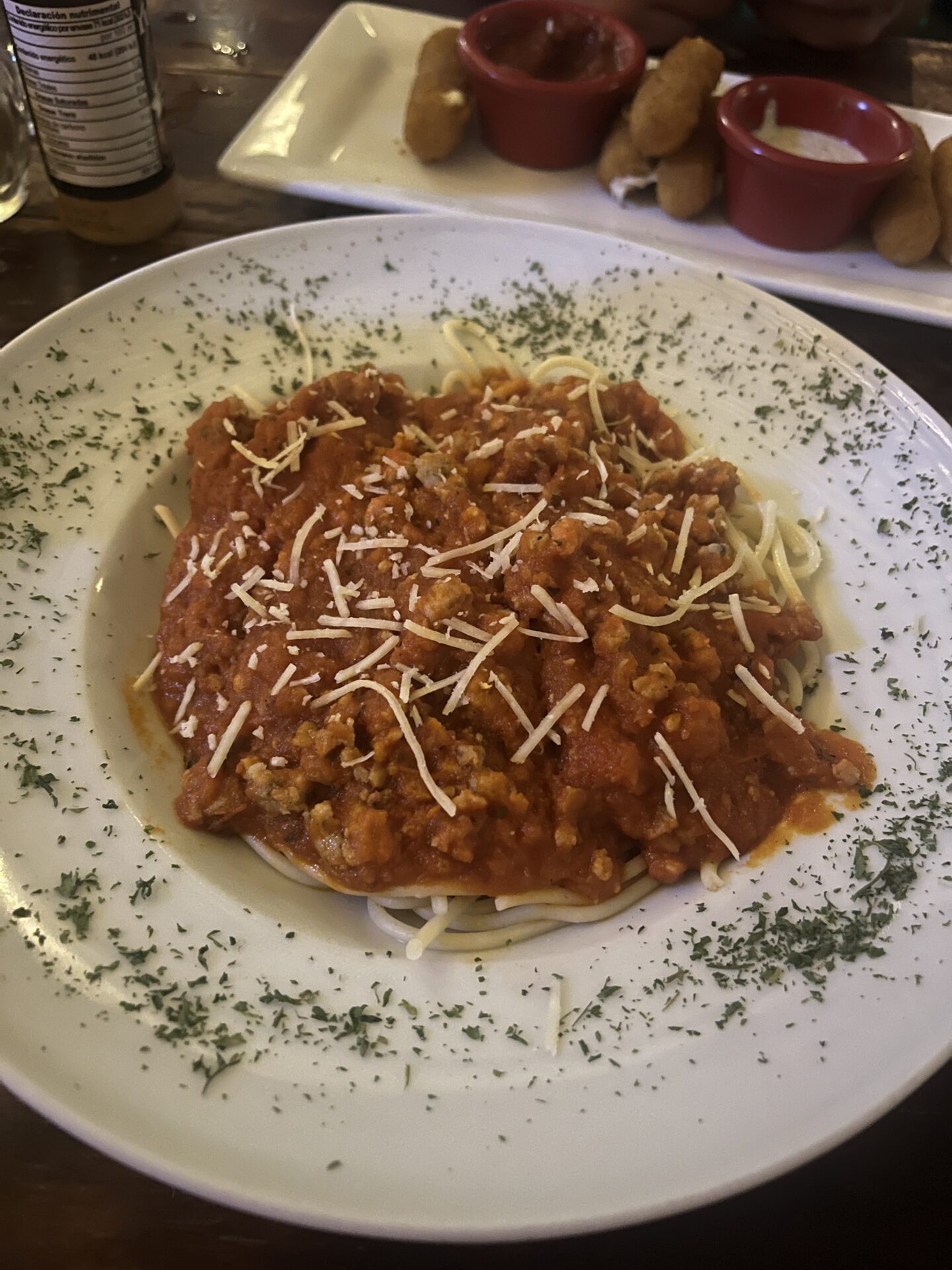Throughout my time in Mérida, the ideas of tourism and tourist-ification permeated my experiences inside and outside of the classroom. The thin line between being a student and being a tourist was one I found myself pondering often.
“Cannibal Tours,” a 1988 documentary by Dennis O’Rourke, delves into the phenomenon of cannibal tourism in Papua New Guinea. It follows tourists as they explore indigenous communities, seeking encounters with supposed remnants of cannibalism and other traditional practices. Throughout the journey, interactions between tourists and locals highlight cultural disparities, prompting viewers to reflect on the ethics of tourism and Western impact on indigenous cultures. The film critiques how tourism often sensationalizes and misrepresents these cultures, urging a more empathetic and respectful approach towards cultural differences.

I found that there was a plethora of Italian-American food around town and I found myself indulging in it occasionally. This made me feel upset afterwards, though. I felt like I was disrespecting the local, traditional cuisine by partaking in these foods that specifically catered towards tourists’ palettes rather than a local Meridian palette. What helped me feel better about this was the fact that IFSA provided authentic Meridian meals from time to time during the trip, so the times I ate the Italian-American foods were just treats. I now appreciate the Meridian cuisine more after the trip than I did before it.
In “The Celebrity Chef Lands in Yaxunah,” the conservation of mayan tradition and culture is highlighted heavily. Yaxunah is a symbol for the old way of indigenous life that permeates through modernity. The opportunity to step foot in the area now is a one that should not be missed because it is a humbling, educational experience, such was the case for myself as well. It made me feel less of a tourist and more of a student as I observed and learned from the village. I’m so grateful for my time in Yaxunah and all of Mérida.